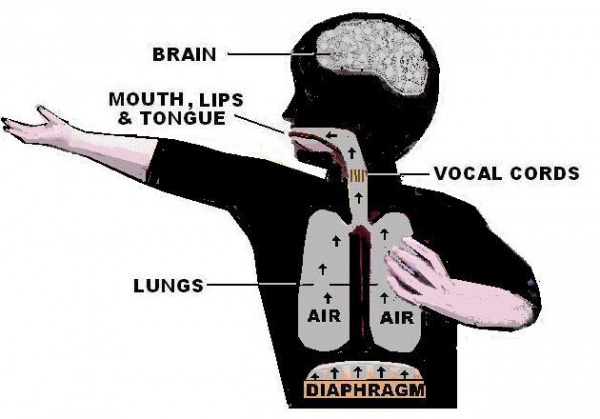The development of articulation1 follows a sequence that takes several years to complete. Some speech sounds, such as “l” “r” , “s” and “i“, are especially difficult to learn how to say, or to pronounce (see full Glossary) (Fig. 1) and some children do not master the ability to make these sounds correctly until they are seven or eight years old. Other speech sounds (e.g., “th” as in “this” and “zh” as in “pleasure”) are developed later on, by age 8. In order to find out which speech sounds develop at which age, please look at the Speech Sound Development Chart.
Figure 1. The illustration shows what needs to happen inside the child’s body for pronunciation or articulation to happen
Some signs of articulation difficulties include:
- Understanding of the child’s speech by only those who know the child well, by age 4;
- Taking a long time to speak or answer questions;
- Showing frustration when speaking (e.g., crying);
- Avoiding to join in or to speak in groups or any social situation and conversations (because of speech difficulties);
- Confusing and substituting sounds after age 6 (e.g. “wabbit” for “rabbit”);
- Missing word beginnings or endings of words (e.g. “kool” or “schoo” for “school”);
- Missing parts of words, or syllables (see full Glossary) in longer words (e.g. “cacuta” for “calculator);
- Saying certain speech sounds in some situations but not others (e.g. saying “s” in school but not “s” in bus): this is a serious red flag.
A child’s self-esteem2 (see full Glossary) may suffer when growing up with speech difficulties. That is because these difficulties are obvious and may draw other people’s attention to them. Children with speech delays need a little bit of extra time when asked questions, so that they can be calm as they respond to questions. This prevents the child from feeling he/she draws the attention of others. The earlier a child receives professional help to work on his or her speech difficulties, the more chances for them to succeed in their language skills.
